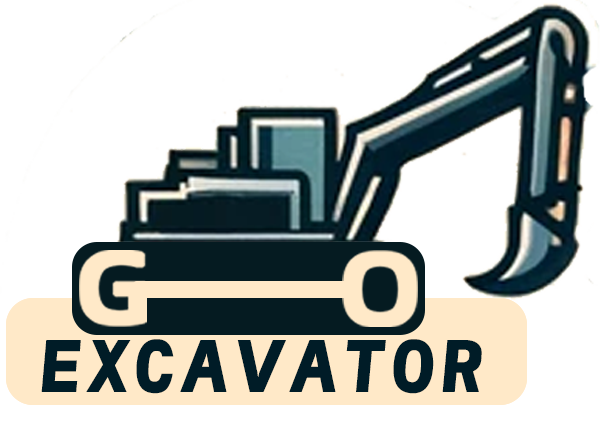
Mini excavators are versatile, compact machines widely used in construction, landscaping, and various other industries. But what exactly defines a mini excavator? This guide will delve into the size specifications and characteristics that classify an excavator as “mini,” providing a clear and comprehensive understanding of these essential machines.
Defining a Mini Excavator
What is a Mini Excavator?
A mini excavator, also known as a compact excavator, is a smaller version of a standard excavator. Despite their smaller size, mini excavators are powerful and highly versatile, capable of performing various tasks including digging, trenching, and demolition.
Key Characteristics
Mini excavators are characterized by:
- Compact Size: Generally weighing between 1 and 10 tons.
- Reduced Tail Swing: Many models have zero or reduced tail swing to operate efficiently in tight spaces.
- Versatility: Ability to use a wide range of attachments.
Size Specifications of Mini Excavators
Weight and Dimensions
The weight and dimensions of a mini excavator are critical factors in defining its category.
Weight Classifications
- Micro Excavators: Weigh less than 1 ton, ideal for very tight spaces and light-duty tasks.
- Mini Excavators: Typically weigh between 1 ton and 10 tons. This category can be further divided:
- 1-2 Tons: Ultra-compact, suitable for extremely tight spaces.
- 2-3 Tons: Small yet powerful, commonly used in residential projects.
- 3-5 Tons: Mid-range mini excavators, versatile for a range of tasks.
- 5-10 Tons: Larger mini excavators, approaching the size and capabilities of standard excavators.
Dimension Specifications
- Length: Usually ranges from 2 to 4 meters.
- Width: Often less than 2 meters, allowing them to navigate narrow spaces.
- Height: Typically less than 3 meters, making them easy to transport.
Tail Swing
Mini excavators often feature zero or reduced tail swing, which means the cab of the excavator stays within the width of the tracks when rotated. This feature is particularly beneficial in confined spaces, reducing the risk of damage to surrounding structures.
Bucket Capacity
The bucket capacity of mini excavators varies but generally ranges from 0.01 to 0.3 cubic meters. Smaller buckets are used for precise digging in confined areas, while larger buckets handle more extensive excavation tasks.

Applications of Mini Excavators
Construction
Mini excavators are frequently used in construction for tasks such as digging trenches, foundations, and site preparation. Their compact size allows them to operate in areas where larger machines cannot.
Landscaping
In landscaping, mini excavators are ideal for digging holes for trees, creating water features, and preparing garden beds. Their precision and small footprint minimize damage to existing landscapes.
Utility Work
For utility work, mini excavators are used to dig trenches for pipes and cables, repair sewer lines, and perform other tasks in restricted urban environments.
Advantages of Mini Excavators
Versatility
Mini excavators can be equipped with various attachments, such as augers, breakers, and compactors, making them suitable for diverse tasks.
Maneuverability
Their compact size and zero-tail-swing design allow mini excavators to maneuver easily in tight spaces and around obstacles.
Ease of Transportation
Due to their smaller size and lighter weight, mini excavators can be transported easily on standard trailers, reducing logistical challenges.
Lower Operating Costs
Mini excavators consume less fuel and require less maintenance compared to larger machines, leading to lower operating costs.
Mini excavators are invaluable machines in the construction, landscaping, and utility industries, defined by their compact size, versatility, and efficiency. Understanding the size specifications and capabilities of mini excavators can help you select the right machine for your specific needs.
FAQs
1. What is the difference between a mini excavator and a standard excavator?
Mini excavators are smaller, more compact machines typically weighing between 1 and 10 tons. They are designed for tasks in confined spaces and are more versatile and maneuverable than standard excavators.
2. Can a mini excavator handle heavy-duty tasks?
While mini excavators are powerful, they are best suited for light to medium-duty tasks. For heavy-duty tasks, a standard or larger excavator would be more appropriate.
3. What attachments can be used with a mini excavator?
Mini excavators can be equipped with a variety of attachments, including buckets, augers, breakers, compactors, and thumbs, making them highly versatile.
4. How do I choose the right size mini excavator for my project?
Consider the scope of your project, the space constraints, and the type of tasks you need to perform. Smaller models are ideal for tight spaces and precise work, while larger mini excavators can handle more extensive tasks.
5. Are mini excavators easy to operate?
Yes, mini excavators are generally user-friendly and come with intuitive controls. Many models also feature advanced technology to assist with precision and efficiency in operation.
A Comprehensive Guide to Buying a Excavator Second Hand
Purchasing a second-hand excavator can be a cost-effective solution for your construction or landscaping needs. However, buying used machinery comes with its own set of challenges and considerations. This comprehensive guide will walk you through [...]
Comprehensive Guide to Hyundai Mini Excavators: Features and Prices
Mini excavators have become indispensable tools in the construction and landscaping industries. Hyundai Construction Equipment, a global leader in heavy machinery, offers a range of mini excavators known for their reliability, efficiency, and advanced features. [...]
How to Extend the Service Life of Excavator Parts
Excavators are indispensable machines in the construction and mining industries. They perform heavy-duty tasks that demand robust components and meticulous maintenance. Extending the service life of excavator parts not only reduces operational costs but enhances [...]
Kymron Excavators: Innovative, Sustainable Construction Machinery
In the dynamic world of construction and heavy machinery, Kymron has emerged as a game-changer. Specializing in advanced excavator technology, Kymron is redefining industry standards with its commitment to innovation, efficiency, and sustainability. Company Overview [...]
Bulldozer vs. Wheeled Excavator: Which Machine is Better for Moving Soil?
Moving soil is a fundamental task in construction, landscaping, and earthmoving projects. Choosing the right machinery for the job can significantly impact efficiency, cost, and project timelines. Two of the most commonly used machines for [...]
Why Are Small Excavators Favored? A Comprehensive Guide
In the world of construction and landscaping, efficiency and versatility are key. Among the myriad of machinery available, small excavators have risen in popularity. But what makes them so favored? Introduction to Small Excavators Small [...]




